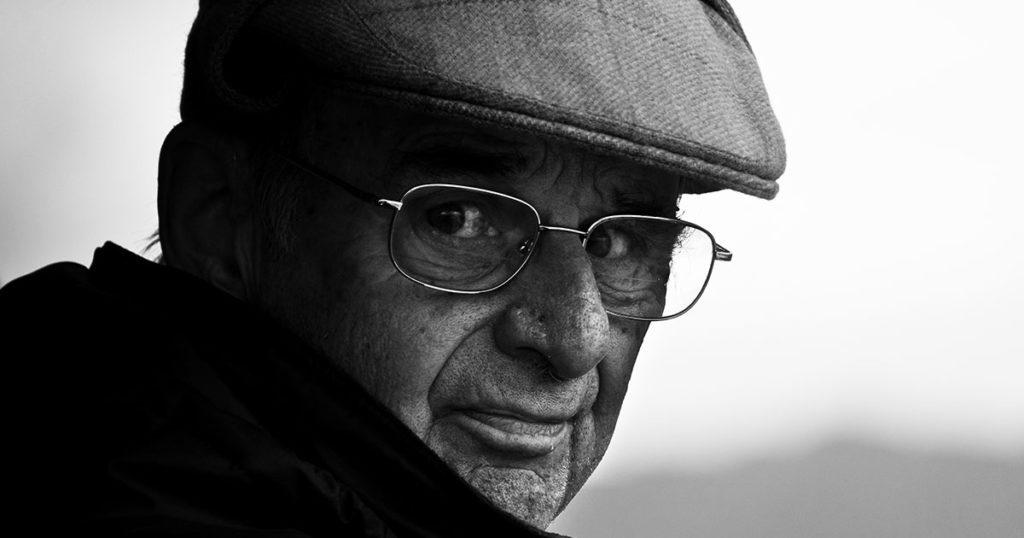
Is it true that two types of people exist—those who pride themselves on their stiff upper lip and sturdy backbone, and those who put stock in their right jab and quick upper left? People who make a point to never complain no matter how badly things go and the ones who put up a fight for the least infringement on their rights? “I can take it” vs. “I won’t take it.” I’ve often thought so. I used to be the second kind, but now I’m the first. For kids, it plays out as the difference between You can’t make me cry and I’m going to tell on you. The stoic vs. the hysteric. Or those who think life is too short to mind the crap, and those who think it’s too short to take the crap.
But lately I’ve thought these are really two different views of the same person: One doesn’t feel the insult, one doesn’t allow it, but either way, no one hurts them; they are impervious, and they are proud. My dad, diagnosed with Parkinson’s about eight years ago, fits neither description. He’s not hell-bent on proving himself stronger than the disease, nor is he swinging at the sources of the affliction. Several years ago, when the family was talking about limitations that were becoming apparent and could be projected into the future, my father said with a smile that he didn’t intend worrying too much about it; instead, he intended to enjoy his decline.
Enjoy Parkinson’s? Who would presume? The gods overhearing might think such an aspiration deserves a splash of cold water. This past summer, while I was helping my dad with the daily routines of getting dressed and getting breakfast, activities that might set him back half the morning, he made a comment about being sorry I had to see him in this state. In his voice was no tone of lamentation and no self-pity, just a twinge of regret, such as you might hear from someone who’d thought the good weather would last longer and a final excursion at the end of a vacation would come off without a hitch. Oh well, not today, this person might have said, watching the brewing clouds and then feeling the winds swirl in and the first drops of rain. “Okay, the weather isn’t going to cooperate, but we can still get on with the day.” That’s my father’s attitude: The day is still ours.
When I asked him if there were any unexpected boons to living with Parkinson’s, he said the disease provided a challenge. The challenge is not to overcome the difficulties—no chance of that with a degenerative disease—but to accept reduced circumstances with grace. That’s what my dad has done, beautifully.
Browsing the Internet one day, I read that grace depends, among other things, on being positive but pragmatic. Also that grace is unmerited mercy, such as God can bestow on people. But in the sense that we are the lords of our own life, then to be merciful toward your life might be to be forgiving in your judgment, which requires letting go of a past wrong done to you. That’s my dad. Instead of remembering the wrong, as some people might do in order to remind others of their own fortitude, he’d let it go, forget, get over it. In Spanish, grace is gracia. But that word also means humor, charm, or a joke. Where’s the gracia in living with Parkinson’s? Be yourself was another tip for achieving grace, and in my dad’s case, certainly, that’s a very good thing. When my dad turns the other cheek, it is not to present it for a blow, nor to glare at fate with the other eye, but to see what lies over his other shoulder. You never know. It could be worth checking out. The day is still ours.


